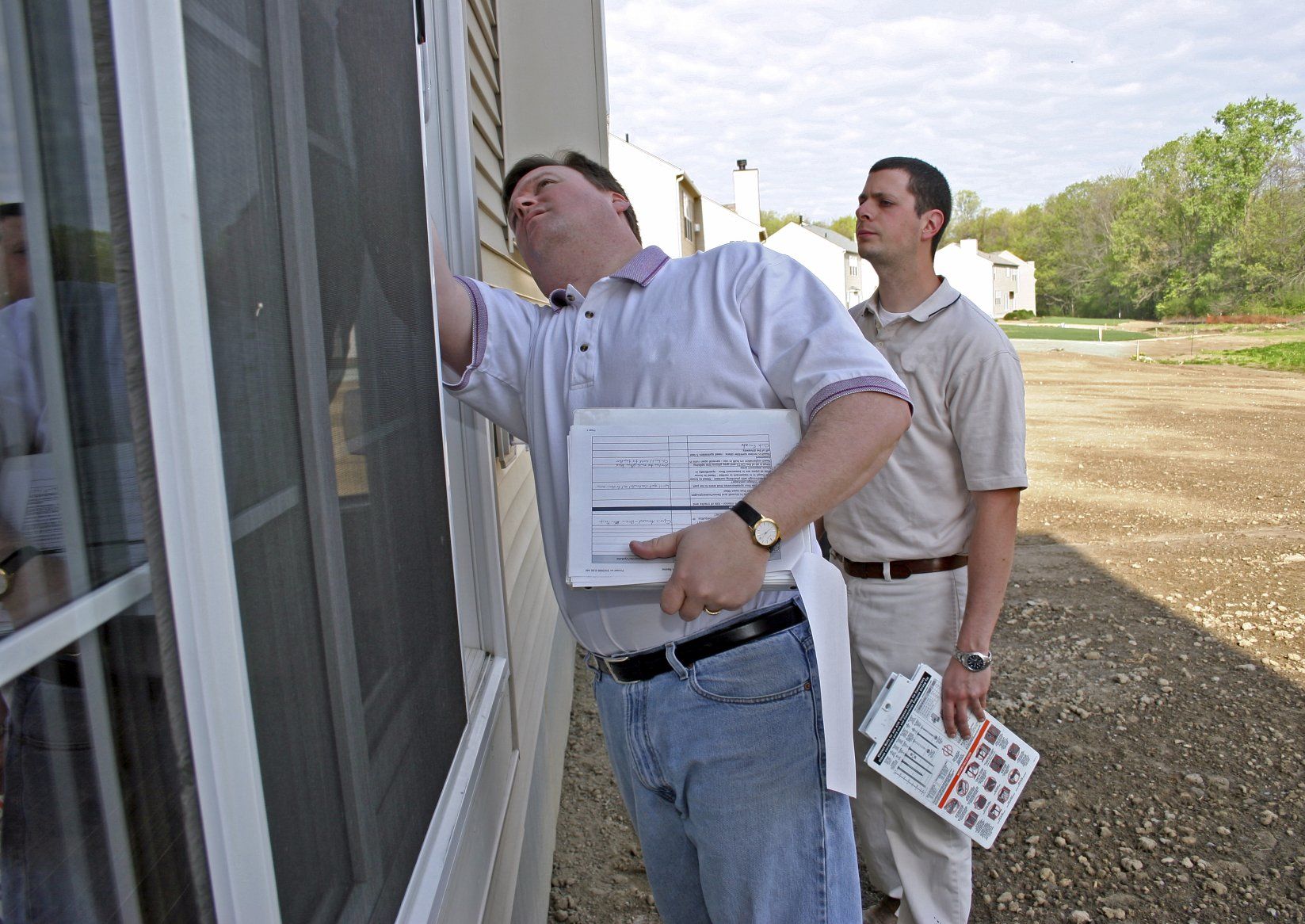-

Selling Your Home
You're ready to sell your property.
And, while you're looking forward to seeing the word "SOLD" posted from the curb, you know there's a lot to consider along the way.
One of your first decisions is to select a real estate company and real estate agent who'll join you in the process.
Button
Step 1. Manage Showings

What is a Showing?
A showing takes place either at an open house, which is a scheduled session when anyone can come by without an appointment, or during an appointment scheduled with you or your listing agent.

How do I prepare my house for a showing?
Your agent is a great source of advice on specifics for your home preparations so that your house is positioned competitively in the market. Preparations will likely include two phases. During phase one, before photos are taken and before the first showing, you should:
- Clean deeply.
- Paint some or all of your house.
- Do minor repairs such as caulking tubs and windows.
- Make major repairs – if needed and in your budget, such as replacing your counters or appliances.
- Stage your furniture to showcase your home’s best features.
- Remove personal items such as family photos.
- Declutter every surface and storage space.
- Reorganize your closets and pack excess items.
- Eliminate odors by cleaning the fireplace or pulling out musty rugs.
- Add a color scheme with rugs or pillows if needed to warm up your home.
- Upgrade your lighting or light bulbs to make your rooms brighter.
- Spruce up the landscaping.
- Power-wash your decks and sidewalks if needed.

What can I expect when showing my house?
Three important things you can do to help get your house sold are:
- Leave when your house is being shown. Buyers prefer to look at homes when they can move around freely and the owners aren’t there.
- Make your house as available as possible. While it may be inconvenient to show your home at dinnertime or on weekends, buyers who can’t see a property when they’re eager may cross it off their list.
- Listen to any feedback from buyers or agents about ways you can make your home more appealing.
Always coordinate with your agent for maximum exposure and a faster sale.

What is an Offer?
An offer to buy your home is a purchase agreement signed by the potential buyer that includes:
- The amount of the offer
- An explanation of how the buyers will pay, such as cash or a pre-approval for financing
- The terms – such as a request for closing cost help or contingencies such as the sale of the buyers’ house, a final mortgage approval, a satisfactory home inspection and an appraisal
- A target date for closing
- An earnest money deposit
- A time limit for the offer

How do I evaluate each offer?
When you receive an offer to buy your home, you and your agent should review it and consider whether you want to accept it. Whether you have one offer or several, you and your agent will look at:
- The amount offered
- Whether the buyer has included or waived contingencies
- Where the funds are coming from, such as all-cash, a reputable local lender, a well-known online lender, or an unknown out-of-town lender
- The proposed closing date and date of possession of the house to see if it aligns with your needs
- Any special requests for items to convey or for special inspections

What happens if I receive multiple offers?
If you receive multiple offers, your agent can advise you on one of these options:
- Accept the best offer. If one offer stands out above the rest, you can accept that one right away. But be careful not to be swayed by a high offer if the financing seems uncertain or if the buyer hasn’t explained a plan for a possible low appraisal.
- Counter all the offers to get a better price and terms. You can ask all potential buyers to give you their best offer by a certain deadline.
- Counter one offer that’s close to what you want. If you like one offer but think the buyers could do a little better, you can send them a counteroffer to see if they’ll accept it.
You and the buyers can negotiate until you both agree on the final contract. Your agent is your best ally during the negotiations and is equipped with the data and knowledge to guide you.

What is a Home Inspection?
A home inspection is a thorough review of your home’s structure and systems by a professional home inspector. Buyers can use the inspection report to decide to rescind their offer if a major issue is uncovered or to request repairs if the contract is contingent on a satisfactory report. In some cases, a home inspection is solely for the buyers’ information and can’t be used to negotiate.

What is looked at during a home inspection?
The inspector will check:
- Structural conditions such as the foundation, beams and floors
- Roof condition
- Mechanical systems such as heat and air conditioning
- Appliances – to make sure they’re working, although some inspectors skip appliances that are not built-in
- Plumbing – for leaks, rust and water pressure
- Electrical systems such as grounded outlets and code violations
- Safety issues such as stairs, handrails, mold or chimney maintenance

What’s not looked at during a home inspection?
The inspector won’t check some items that are unusual or inaccessible, such as:
- Septic systems
- Wells
- Underground pipes and sprinkler systems
- Swimming pools and spas
- Playground equipment

How should I prepare for an inspection?
Before the home inspector arrives, you should:
- Clean your house.
- Remove or crate your pets.
- Make sure all your light bulbs work.
- Empty your washing machine, dryer, oven, and dishwasher – in case they are inspected.
- Make sure everything is accessible, including your attic, a crawlspace, your garage and any sheds.
- Leave a note if anything doesn’t work and explain that you’re getting it fixed.
- Provide documents about maintenance and repairs.
- Leave your cell phone number for the inspector.
- Leave the house.

What happens now?
Once the inspection report has been generated, you and your agent can discuss how to handle any possible issues the buyers mention. You can negotiate with the buyers, decide to fix an item, provide money for the buyers to fix it themselves or provide documentation that the problem has already been addressed. Your agent can help you handle any inspection issues.

What is an Appraisal?
An appraisal is an objective valuation of your property that serves as a safeguard for the buyer and the buyer’s lender. While the buyer pays for an appraisal, the appraiser actually works for the lender. While an appraiser may look at some of the same things as a home inspector, the result is an appraised value of your property rather than a condition report.

How is my house appraised?
Appraisers use as many measurable pieces of data available to provide an accurate value of your property, including:
- Comparable properties in your area that are of similar size, age and condition
- The condition of your home’s systems and structure
- The square feet of your property
- The number of bedrooms and bathrooms
- Your location
- The quality of your flooring, plumbing and electrical systems
Appraisers include research about other properties and neighborhood values, as well as an in-person visit for their evaluation of your home.

How should I prepare for an appraisal?
Preparing for an appraisal is similar to prepping for an inspection. You should:
- Provide a list of all major improvements to the home and the age and condition of your roof, heating and air conditioning system, and appliances.
- Provide any permits required for home improvements.
- Clean your house.
- Provide full access to all rooms and spaces, including the garage, sheds, attic and crawlspace
- Remove or crate your pets.
- Leave the house, or at least stay out of the appraiser’s way.

How can an appraisal affect my home sale?
An appraisal could require a renegotiation if the property value comes in lower than the sales price. The appraised value dictates the maximum amount the lender will allow the buyers to borrow, minus their down payment. Depending on how the contract was written, if the appraisal is low, you can:
- Ask the buyer to come up with extra cash to make up the difference between the loan amount and the purchase price.
- Reduce your price to the appraised value.
- Split the difference with the buyer.
- Cancel the contract.
Your agent can advise you on your options in the context of the contract and market conditions.

What should I do before the closing?
Before the closing day, you’ll need to:
- Take care of repairs required by the contract.
- Keep all receipts and invoices and before-and-after photos of repairs.
- Gather all appliance manuals and warranties for your buyers.
- Hire a mover.
- Cancel all utilities for the day after you move.
- Change your address.
- Review all settlement documents, especially the settlement statement.
- Check the property survey to be sure it’s correct.
- Clean the house.
- Prepare for the buyers’ final walk-through

What can I expect when closing?
Sellers may or may not attend the closing, so you should consult your agent and the settlement company to decide what’s best. You can sign all documents before the official closing. Sellers’ expenses, which are deducted from the proceeds of the sale, include:
- Final balance on your mortgage
- Real estate commissions
- Prorated property taxes, utility bills, homeowner’s insurance, and homeowners association dues
If you can’t move before the closing, you’ll need to arrange a rentback from the buyers. Your agent can help you complete appropriate paperwork for a rentback. If you are moving, the buyers will do a walk-through of your home within 24 hours before the closing to check that the property is in good condition. If the buyers find something that needs to be fixed, your agent can help you decide how to handle it. Whether or not you attend the closing, you’ll need to provide house keys to your buyers, along with all alarm codes, remote controls for the garage, and mailbox or gate keys.

What’s next?
After the closing, you’ll:
- Receive the proceeds from the sale, usually by wire transfer.
- Cancel your homeowner’s insurance “post-close” – to make sure you’re covered on that day.
- Save your closing documents and home improvement records for taxes.
Congratulations! We have successfully traveled this road together and sold your home!





